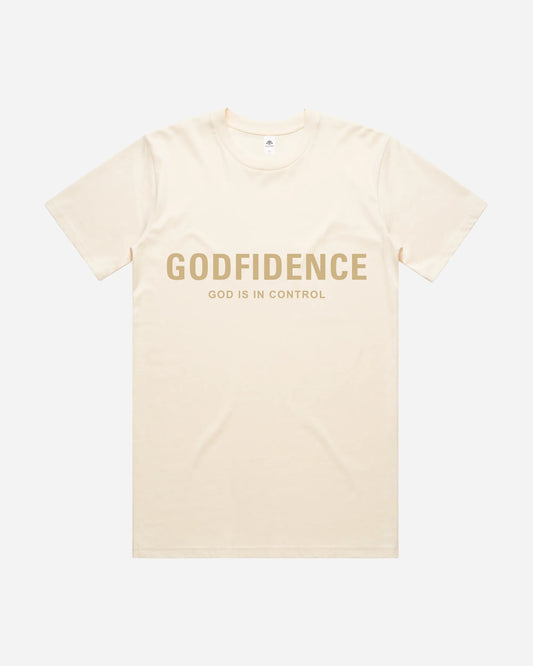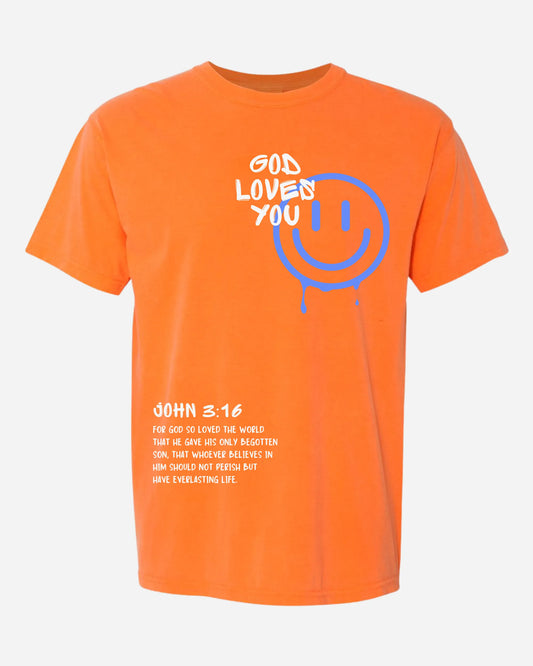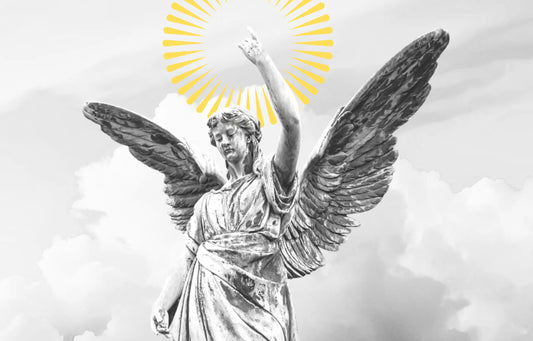Fear often enters quietly—through a troubling diagnosis, the loss of a job, or the long silence that follows uncertain news. It takes hold not only of the mind, but of the soul, pulling us away from peace and into isolation. We’ve all experienced moments when the ground beneath us felt unsteady.
In Scripture, fear is not denied or dismissed. It is named, acknowledged, and—most importantly—met by the presence of God.
Table of content
- 1. What Does Faith Over Fear Actually Mean?
- 2. Why Fear Feels So Powerful
- 3. The Three Types of Fear
- 4. From Garden to Gospel: The Origin of Fear
- 5. What Faith Looks Like in a World of Fear
- 6. Recognizing Your Fear Triggers & Replacing Them with Truth
- 7. How to Walk by Faith Daily (Not Just Theoretically)
- 8. Faith Over Fear Isn’t Just for You—It’s for Others Too
- 9. Conclusion: Speak It, Soak In It, Walk It Out
What Does Faith Over Fear Actually Mean?
Faith over fear is more than a phrase—it’s a deliberate response. It means choosing to trust God’s unchanging character even when life feels unstable. Faith does not silence fear completely, but it reorders our allegiance: we choose to lean into God’s promises rather than our panic.
What The Scripture Says
The Bible defines faith as:
The assurance of things hoped for, the conviction of things not seen.
This assurance is not tied to outcomes, but to who God is—faithful, present, sovereign. In contrast, fear often flows from uncertainty, loss of control, or perceived absence of God.
Paul reminds Timothy:
“God gave us a spirit not of fear but of power and love and self-control” (2 Timothy 1:7).
God gave us a spirit not of fear but of power and love and self-control.
Fear may arise, but we are not ruled by it. We are invited to walk in power, love, and holy discipline.
Clarifying a Common Misunderstanding
It is a mistake to think that feeling fear means a lack of faith. Even Jesus’ disciples were afraid. Faith is not the absence of emotion, but the presence of trust—even amid trembling.
Faith as a Way of Seeing
To live by faith is to see reality through the lens of God’s truth. Fear says, “You’re alone.” Faith replies, “God is with me.” Fear says, “You won’t make it.” Faith answers, “God will sustain me.”
Faith over fear is not bravado—it’s surrender. It’s resting in the One whose love casts out fear (1 John 4:18).
Why Fear Feels So Powerful

The Grip of Fear: Body, Mind, and Spirit
Fear is not just emotional—it’s physiological. When we encounter a threat, our bodies respond with a flood of adrenaline, a racing heart, and narrowed focus. This is the fight-or-flight response, a God-designed system meant to protect us from danger.
But in a fallen world, this system often misfires. Chronic anxiety, trauma, or spiritual confusion can leave us reacting to perceived threats as if they were life-or-death moments. Fear becomes a prison, not a warning light.
The Spiritual Dimension of Fear
Scripture reminds us that fear is not only biological—it can be spiritual warfare.
We do not wrestle against flesh and blood... but against spiritual forces of evil.
Fear can be a weapon of the enemy, sowing doubt in God’s presence and goodness. When fear leads us away from prayer, Scripture, or trust in Christ, it reveals a deeper battle for the soul’s allegiance.
Jesus Meets Fear with Compassion
Throughout the Gospels, we see how Jesus responds to fear—not with rebuke, but with presence and peace.
- In the storm: “Peace, be still” (Mark 4:39).
- To troubled hearts: “Let not your heart be troubled, neither let it be afraid” (John 14:27).
Christ does not shame the fearful—He speaks into their fear with authority and tenderness. His response shows that fear is not an obstacle to grace, but a doorway for divine encounter.
The Three Types of Fear

Fear wears many faces, and not all are equal. Scripture speaks to different kinds of fear, each requiring distinct wisdom. Understanding these categories helps us discern whether our fear needs calming, healing—or holy reverence.
1. Physical Fear: A God-Given Alarm System
This is the most instinctive form of fear—the one that tells you to jump out of the way of a car or avoid walking into fire. It’s tied to survival and is not sinful, but part of God’s design for protection.
In these moments, fear isn’t a failure of faith—it’s a signal from your body that you’re in danger. However, if unchecked, it can bleed into every area of life, even when no real threat exists.
2. Emotional Fear: Wounds That Whisper Lies
Emotional fear stems from our past—trauma, rejection, shame, or failure. It often operates quietly beneath the surface, convincing us that what hurt us before will hurt us again.
This type of fear is deeply human, but it can distort our view of God and self.
Scripture speaks into this space:
“Perfect love casts out fear, for fear has to do with punishment” (1 John 4:18).
Here, love—not logic—is the antidote.
3. Spiritual Fear: Reverence or Torment?
This is where discernment matters. The Bible celebrates holy fear:
“The fear of the Lord is the beginning of wisdom” (Proverbs 9:10).
This is not dread—it’s reverence, awe, and deep respect for God's holiness.
Example: Isaiah’s trembling before God’s throne (Isaiah 6:5)—which led to purification and purpose.
But not all spiritual fear is holy. Some people live in constant terror of God’s judgment, unsure of His grace. This tormenting fear is not from God.
“You did not receive the spirit of slavery to fall back into fear...” (Romans 8:15).
How They Interact
These fears are rarely isolated. A physical threat can awaken emotional memories. Spiritual confusion can worsen emotional panic. But faith speaks into all three—rooting us in truth, healing, and reverence, not panic.
From Garden to Gospel: The Origin of Fear
To understand fear, we must trace it back—not to our first panic attack or moment of loss—but to the beginning of the human story.

The First Fear: Shame in the Garden
Fear makes its biblical debut in Genesis 3. After Adam and Eve disobey God, they do not merely feel guilt—they hide.
“I heard the sound of You in the garden, and I was afraid...” (Genesis 3:10).
Here, fear is the fruit of separation—not just from Eden, but from communion. For the first time, humanity felt unsafe in God’s presence. The instinct was not to run to Him, but away.
Fear Is Not a Flaw—It’s a Sign of Distance
From that moment on, fear became a marker of our estrangement from God. We fear what we cannot trust, and we mistrust when intimacy has been fractured.
But even in Eden’s fallout, God pursued the fearful. His first act wasn’t punishment, but calling: “Where are you?” (Genesis 3:9). The tone is not anger—it’s heartbreak.
Christ, the Bridge Back to Boldness
The Gospel is the divine reversal of fear. Where sin created hiding, Christ creates access:
“You have not received a spirit of slavery leading to fear again, but... a Spirit of adoption” (Romans 8:15).
Through Christ, we no longer approach God with trembling but with confidence and intimacy.
“Let not your hearts be troubled... believe in Me” (John 14:1).
The Gospel does not promise a fear-free life. It offers something better: a restored relationship that redefines fear in the light of love.
What Faith Looks Like in a World of Fear
In a world buzzing with worst-case scenarios and self-preservation, faith often looks foolish. But biblical faith doesn’t ignore fear—it defies it by anchoring in truth.

Faith Isn’t Playing It Safe
Modern life teaches us to minimize risk, insulate from discomfort, and avoid uncertainty. But Scripture presents a different picture.
The heroes of faith didn’t live cautiously—they lived convictionally:
1. Noah built in a drought.
2. Abraham left everything without a map.
3. Esther spoke when silence was safer.
True faith doesn’t mean the absence of fear—it means obedience in spite of it.
Faith Is Anchored, Not Fragile
Biblical faith isn’t naïve optimism. It’s anchored confidence in the unchanging character of God.
“We have this hope as an anchor for the soul, firm and secure.” (Hebrews 6:19)
It doesn’t say, “Everything will turn out how I want.”
It says, “Even if it doesn’t, I will trust the One who holds the outcome.”
Trusting God’s Character, Not the Chaos
When life feels uncertain, we default to what feels controllable. Faith flips that script. It teaches us to trust not what we see, but Who we know:
“He who dwells in the shelter of the Most High will abide in the shadow of the Almighty.” (Psalm 91:1)
And in the face of every fear, God’s promise remains:
“Do not fear, for I am with you... I will strengthen you, I will help you...” (Isaiah 41:10)
Faith in a fearful world isn’t loud or flashy. Often, it’s quiet resolve—a whispered “Yes, Lord” when everything screams “Run.”
Recognizing Your Fear Triggers & Replacing Them with Truth
Fear doesn’t always come as a full-blown panic—it often sneaks in through familiar patterns. Recognizing those entry points is the first step toward spiritual resilience.
Common Fear Triggers
Each of us carries personal vulnerabilities shaped by story, personality, and past pain. Some of the most common include:
- Finances – fear of lack, insecurity about the future
- Health – illness, aging, medical uncertainty
- Rejection – fear of being unloved or abandoned
- Failure – fear of disappointing others or falling short
These aren’t sins—they’re signals. But when they govern our reactions, they can displace trust in God.
How to Discern When Fear Is Leading
You may be led by fear if:
- Your decisions are ruled by "what ifs" more than convictions
- You avoid rather than pray
- You obsess over control rather than seek peace
Fear masquerades as wisdom, but the fruit is restlessness, isolation, and spiritual paralysis.
Replacing Fear with Spiritual Truth
Faith doesn’t just cast fear out—it replaces it with truth:
- Scripture Meditations – “When I am afraid, I put my trust in You.” (Psalm 56:3)
- Breath Prayers – inhale: “Be still…” / exhale: “…and know that I am God.”
- Journaling Prompts – “What am I afraid of, and what does God say about it?”
Jesus didn't promise an unshakable life, but an unshakable heart:
“Peace I leave with you; My peace I give to you… let not your hearts be troubled.” (John 14:27)
How to Walk by Faith Daily (Not Just Theoretically)
Faith isn’t just a neat idea or something we tick off once and forget. It’s a daily rhythm, a steady walk with Christ through all the unknowns, the ups and downs, the ordinary and the overwhelming.

1. Pray Boldly
Prayer is more than asking God to “fix” our problems. It’s a courageous conversation where we invite God to shape us through the situation, not just remove it. Faithful prayer asks for clarity, boldness, and surrender—not just peace.
Hebrews 4:16 encourages us: “Let us then approach God’s throne of grace with confidence…” That confidence isn’t arrogant; it’s rooted in knowing God’s mercy is always ready for us.
So next time you pray, don’t hold back. Say, “God, form me through this trial. Give me courage to face what’s ahead, wisdom to see Your way, and peace to rest in Your plan.”
2. Speak Truth Out Loud
Our fears lose power when we give voice to God’s promises. Scripture isn’t just to be read silently—it’s to be declared boldly. When you find yourself overwhelmed, speak aloud:
“God is my refuge and strength” (Psalm 46:1)
“I can do all things through Christ who strengthens me” (Philippians 4:13)
The enemy thrives when we stay quiet. Faith grows when we confess truth, even in the darkest moments.
3. Stay Close to God
Walking by faith daily means cultivating spiritual habits that aren’t chores but lifelines. These practices connect us to God’s presence and remind us who He is:
- Scripture reading — not just for knowledge but for transformation, letting God’s Word reshape your heart.
- Stillness and solitude — learning to be before God, not just do for Him.
- Worship and community — raising your eyes and voice together with others, finding strength in shared faith.
Faith isn’t a destination. It’s a daily walk, an ongoing invitation to lean into God’s presence even when the way feels uncertain.
Faith Over Fear Isn’t Just for You—It’s for Others Too
Faith is personal, but it is never private. What God builds in you—He intends to use through you. Your story of courage becomes someone else’s survival guide.

Your Faith Is a Testimony in the Making
Every time you choose trust over panic, you preach a sermon without words.
- Your peace in trials invites others to ask, “Where does that come from?”
- Your honesty about struggle shows that faith isn’t fake, it’s anchored
- Your breakthrough moments become light for others still in the tunnel
Let your light shine before others, so that they may see your good works and give glory to your Father in heaven.
Small Acts of Faith Have Rippling Impact
You don’t need a pulpit—you just need presence.
- Text someone a verse that’s helped you
- Pray with a friend, not just for them
- Share your journal reflection or worship playlist
- Offer your fear story, not just your victory story
Each act of boldness says, “You’re not alone. God is faithful.”
Faith as Legacy
What if the way you face fear today sets the tone for your family, your children, your church? Living by faith doesn’t just silence fear—it raises a standard for others to follow.
Conclusion: Speak It, Soak In It, Walk It Out
Faith over fear is not a once-off decision but a daily posture. I invite you now to declare your trust in God aloud. Speak a promise of Scripture that anchors your soul. Let it sink deep.
Consider journaling your fears alongside God’s truths—watch how perspective shifts and peace grows. Share your journey with a trusted friend or prayer group. You are not alone.
Fear is real, but so is the God who conquers it. Choose faith today—and every day.














